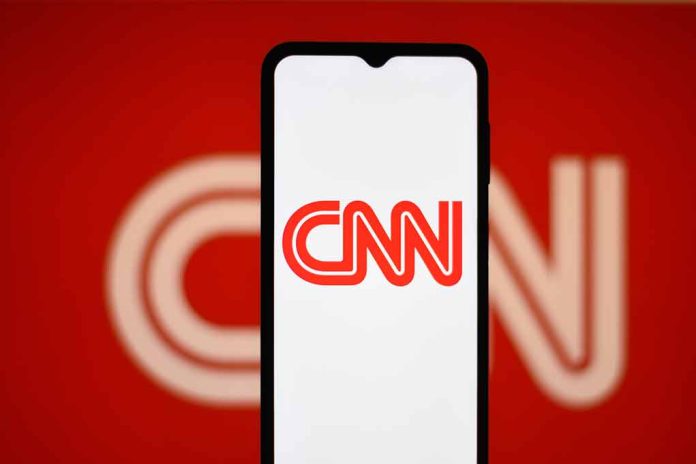
Veterans Affairs Secretary Doug Collins took CNN to task following a misleading report on VA call centers, igniting a debate on media ethics and accountability.
Key Takeaways
- Doug Collins criticized CNN for a report suggesting VA call centers were moving toward automation.
- CNN reporter Brian Todd allegedly ignored correct information provided by Collins prior to the report’s airing.
- Past incidents involving CNN and veterans, such as Zachary Young’s defamation case, were highlighted in Collins’ criticism.
- VA representatives echoed Collins’ call for CNN to reassess their reporting integrity and practices.
- Collins utilized social media to appeal to CNN anchor Wolf Blitzer for higher journalism standards.
Contentious CNN Report on VA Call Centers
Doug Collins, Secretary of Veterans Affairs, sharply criticized a news report aired by CNN. The network claimed that VA call centers were gearing towards automation, a move Collins firmly denied. According to Collins, the report by CNN’s Brian Todd blatantly ignored accurate information provided beforehand, opting instead for distorted narratives from VA critics. Collins admonished CNN’s seemingly lax journalistic ethics, emphasizing how the report threatened to mislead the public on a crucial service for veterans.
The tension epitomizes the friction between media coverage and government institutions when information is perceived as manipulated. Collins highlighted a recent defamation case where U.S. Navy veteran Zachary Young was awarded $5 million, showcasing what he described as CNN’s careless approach towards veterans’ issues. Calls for improved validations and ethical practices from VA representatives signal a movement towards demanding higher standards in journalism, a sentiment Collins echoed during his appeals to CNN bigwigs.
Collins’ Social Media Outcry
Collins turned to social media to express his dissatisfaction and demand improvements. In a series of posts on X, he asked CNN anchor Wolf Blitzer to enforce higher standards on correspondent Brian Todd, challenging the network’s reputation. He reiterated that Todd’s reports sometimes rely on unverified data and opposition research, casting a shadow over the network’s credibility. Despite repeated appeals to CNN executives, Todd’s controversial story ran, further exacerbating tensions between the network and the VA.
True stories about the fake news: @CNN edition. 🧵
— VA Secretary Doug Collins (@SecVetAffairs) April 1, 2025
The situation underscores an ongoing struggle for balanced media reporting. As veterans depend on accurate service-related information, Collins cautioned against misinformation conspiracies designed as fake news strategies. His call to CNN underscores the VA’s commitment to transparency and highlights the detrimental implications of irresponsible journalism on veterans nationwide.
Maintaining Integrity in Media
The war of words between Collins and CNN reveals a larger question: how can media networks continue to report ethically in an era rife with misinformation? It prompts a reevaluation of journalistic standards and ethics, particularly concerning government coverage. Collins’ criticism serves not just as a defense of his department’s policies but also as a wake-up call to news outlets: be scrupulous with facts, especially when reporting on veterans’ affairs. The repercussions of misleading stories extend beyond immediate impact, affecting public trust and institutional integrity.
This incident has become a pivotal reminder of the importance of accountability and ethics in journalism as media stories reach massive audiences at unprecedented speeds. Networks like CNN are now tasked with balancing swift reporting with unwavering truthfulness, ensuring they fulfill their role as carriers of unbiased and vetted information.
Sources:
- VA Secretary Doug Collins throws lawsuit in CNN’s face during contentious interview on Signal chat leak
- VA Secretary Dismantles CNN Over Fake Story On ‘Automated Call Centers’
- Veterans Affairs Secretary Collins Nukes CNN AGAIN After Another Hit Job



